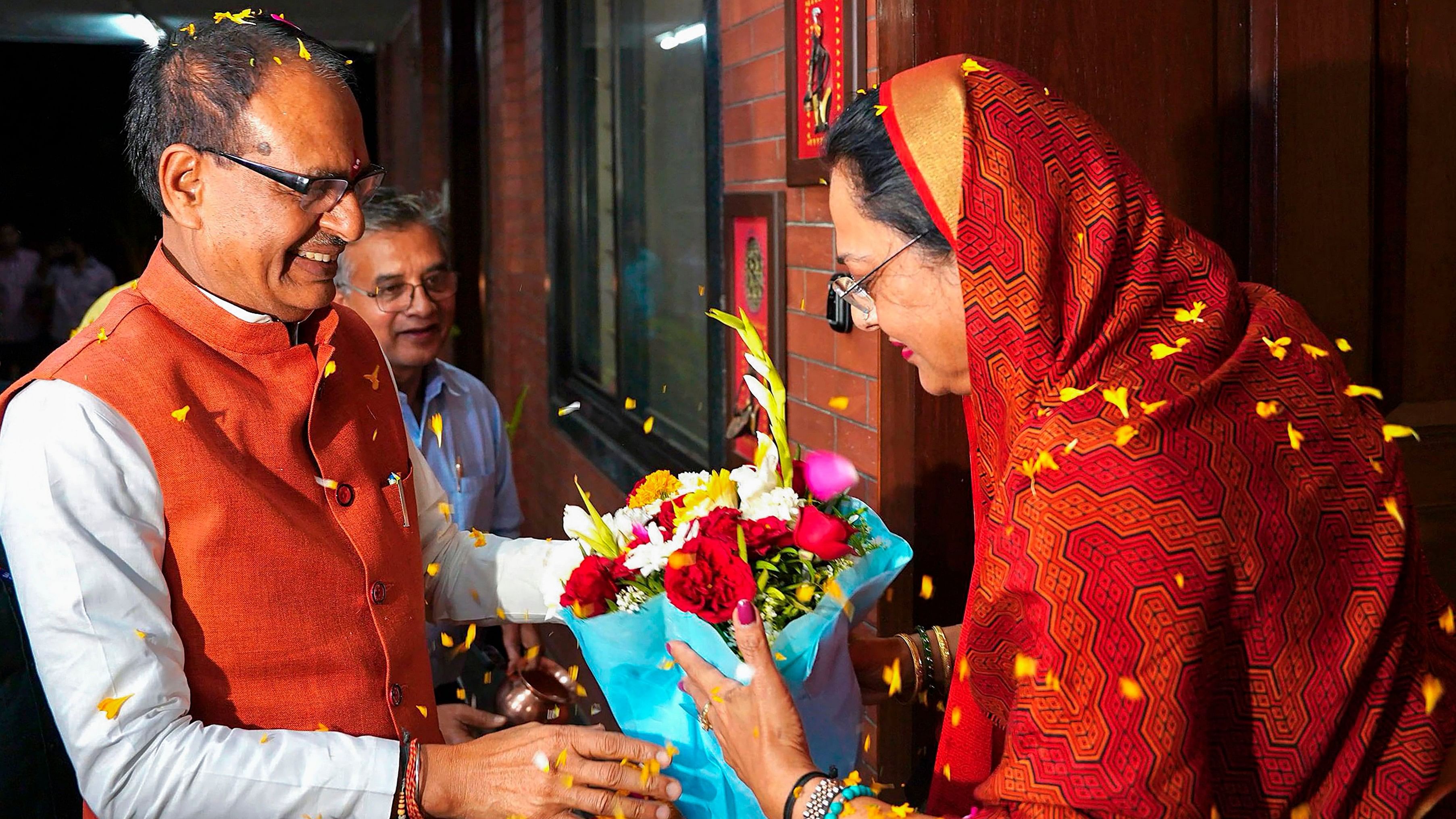
BJP leader and former Madhya Pradesh chief minister Shivraj Singh Chouhan being congratulated after being named to contest from Vidisha seat in the Lok Sabha elections.
Credit: PTI Photo
New Delhi: The first list of BJP candidates for Lok Sabha polls suggests a broader policy framework the ruling party has evolved under Narendra Modi and Amit Shah in candidate selection to pare down local anti-incumbency by dropping ‘non-performers’ and shuffling the pack at regular intervals to militate against plenipotentiary tendencies in state units.
Sample this. A quarter of the candidates in the first list of 195 are below 50 years of age. One out of every five sitting MPs has been replaced and many Union ministers have been benched.
The blueprint for ticket distribution is an extension of the last round of state elections where more than a dozen sitting MPs, including Union ministers, were dispatched to contest Assembly polls to bring in fresh faces at the Centre.
This constant churn between the Centre and states has helped the BJP to expand its catchment area by drawing upon talent from a diverse social base. At the same time, the party has sought to dismantle regional hierarchies built on personal political patronage, a problem that has plagued the Congress for long as the grand old party grapples to keep its state strongmen under check.
While four-time MP Chief Minister Shivraj Singh Chouhan has been asked to move base to Delhi, Narendra Singh Tomar, the former Union minister who was once considered Chauhan’s challenger, is now the Speaker of the Madhya Pradesh Assembly. So is former Chhattisgarh Chief Minister Raman Singh even as the party nominates two former sarpanches to contest LS polls.
At the same time, the party has not been too rigid in making exceptions for electoral gains. In Karnataka for instance, handing over reins of the state unit to former CM B S Yediyurappa and his associates after the poll debacle last year shows BJP’s willingness to accommodate leaders who can deliver on the ground.
Bottoms-up approach
The other distinct feature for seat selection is the bottoms-up approach being used by the BJP in collating independent feedback from multiple agencies on ticket aspirants through online and offline affordances — both within the party and outside. Sitting MPs have been regularly urged to connect with the people and increase their social media presence. Those whose performance was found wanting have been axed. The number may go up in the coming lists.
And finally, the current BJP shows due diligence to demographic realities and caste calculus in ticket distribution. OBCs, which account for the biggest voting bloc in the country have got due weightage.